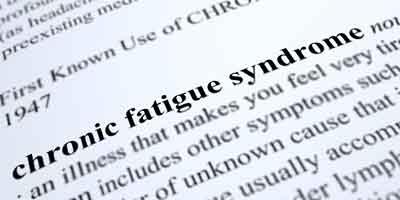- Home
- Editorial
- News
- Practice Guidelines
- Anesthesiology Guidelines
- Cancer Guidelines
- Cardiac Sciences Guidelines
- Critical Care Guidelines
- Dentistry Guidelines
- Dermatology Guidelines
- Diabetes and Endo Guidelines
- Diagnostics Guidelines
- ENT Guidelines
- Featured Practice Guidelines
- Gastroenterology Guidelines
- Geriatrics Guidelines
- Medicine Guidelines
- Nephrology Guidelines
- Neurosciences Guidelines
- Obs and Gynae Guidelines
- Ophthalmology Guidelines
- Orthopaedics Guidelines
- Paediatrics Guidelines
- Psychiatry Guidelines
- Pulmonology Guidelines
- Radiology Guidelines
- Surgery Guidelines
- Urology Guidelines
Chronic fatigue syndrome flare-ups caused by straining muscles and nerves

A recent study conducted by researchers at the University of Alabama at Birmingham and Johns Hopkins University School of Medicine published in PLOS ONE shows that symptoms of chronic fatigue syndrome, a complex and disabling multisystem disorder, can be provoked by imposing a mild to moderate strain to the muscles and nerves.
Eighty individuals, 60 with CFS and 20 without CFS, reported their levels of fatigue, body pain, lightheadedness, concentration difficulties and headache every five minutes while undergoing 15 minutes of either a passive supine straight leg raise the raising and holding up of one of an individual’s legs while they lie on their back on an exam table or a sham leg raise that did not cause strain.
Participants were contacted 24 hours later and again reported their symptoms. Compared to those with CFS who underwent the sham leg raise, individuals with CFS who underwent the passive leg raise that actually strained their muscles and nerves reported significantly increased body pain and concentration difficulties during the procedure. After 24 hours, these same individuals who underwent the true strain also reported greater symptom intensity for lightheadedness and the overall combined score for symptoms. The individuals with CFS who underwent the true strain also reported more symptoms during, and 24 hours after, the true strain compared to individuals without CFS.
“These findings have practical implications for understanding why exercise and the activities of daily living might be capable of provoking CFS symptoms,” said Kevin Fontaine, Ph.D., professor and chair of the UAB School of Public Health Department of Health Behavior and a co-author of the paper. “If simply holding up the leg of someone with CFS to a degree that produces a mild to moderate strain is capable of provoking their symptoms, prolonged or excessive muscle strain beyond the usual range of motion that occurs during daily activities might also produce symptom flares.”
As Peter Rowe, M.D., lead author and director of Johns Hopkins Children’s Center Chronic Fatigue Clinic, noted in the article, “The lengthwise strain applied to the nerves and muscles of the lower limb is capable of increasing symptom intensity in individuals with CFS for up to 24 hours, indicating that increased mechanical sensitivity may be a contributor to the provocation of symptoms in this disorder.”
Rowe and Fontaine, and their physical therapist collaborator Rick Violand, intend to extend this work to further understand the effects that strains to the muscles and nerves have on CFS, as well as whether specific physical therapy methods could be used to improve neuromuscular function to reduce symptoms.
The study was funded by a grant from the Solve ME/CFS Initiative.
You can read the full article by clicking on the following link :
Peter C. Rowe, Kevin R. Fontaine, Megan Lauver, Samantha E. Jasion, Colleen L. Marden, Malini Moni, Carol B. Thompson, Richard L. Violand.Neuromuscular Strain Increases Symptom Intensity in Chronic Fatigue Syndrome. PLOS ONE, 2016; 11 (7): e0159386 DOI:10.1371/journal.pone.0159386

Disclaimer: This site is primarily intended for healthcare professionals. Any content/information on this website does not replace the advice of medical and/or health professionals and should not be construed as medical/diagnostic advice/endorsement or prescription. Use of this site is subject to our terms of use, privacy policy, advertisement policy. © 2020 Minerva Medical Treatment Pvt Ltd